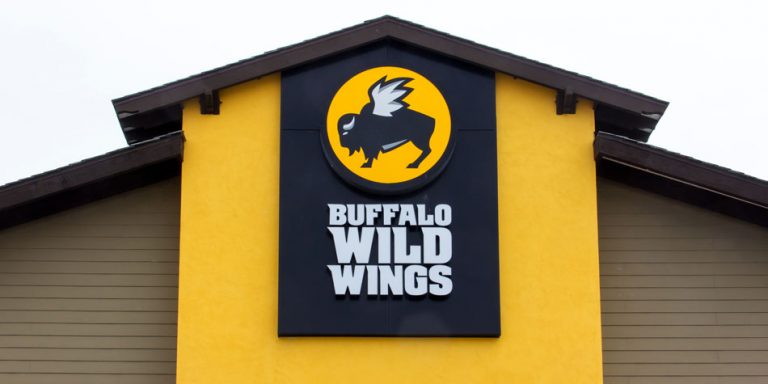It’s official … more or less. Buffalo Wild Wings (NASDAQ:BWLD) is to be acquired by fast food chain Arby’s, which is owned and operated by private equity firm Roark Capital. BWLD stock jumped 6% on Wednesday in response to the news, which isn’t much.
However, Buffalo Wild Wings stock has now gained 55% from its October lows, when rumors of the impending buyout first surfaced.
The acquisition won’t come cheap to Roark, which is facilitating the $2.9 billion deal … a deal only worth $2.4 billion after paying off Buffalo Wild Wings’ debt. But, it may well be worth it if Arby’s chief Paul Brown can do for the chicken wings eatery what it has only almost been able to do for itself.
What Buffalo Wild Wings Offers Arby’s
At first glance, the acquisition of Buffalo Wild Wings seems like something of a mismatch, pairing a roast beef sandwich chain with a disparate fast/casual sit-down venue. Throw in the cost-cutting advocacy far too many private equity outfits often impose, and one can’t help but be concerned this deal may well make a salvageable Buffalo Wild Wings unsalvageable.
This one may be an exception to that all-too-frequent outcome though.
First though not foremost, diversified restaurant chains work. One only has to look at Yum! Brands, Inc. (NYSE:YUM) to see that Yum! is the parent of Taco Bell, KFC and Pizza Hut, but it works. If nothing else, a semi-related restaurant network adds diversity to Arby’s cash flow, and increases scale and cross-selling opportunities.
Second, BWLD is a true earnings growth opportunity.
Buffalo Wild Wings, also affectionately called BW3’s, is one of those names that has been on the verge of greatness for years, but it has been unable to get over the proverbial hump. One soft spot that could be easily fixed is its operating margins, which are below the industry’s average at 20.5%. The trick is simply an owner/operator with a willingness and wherewithal to impose the cost cuts the restaurateur’s peers and competitors have already imposed on themselves.
Roark has that wherewithal. As Raymond James analyst Brian Vaccaro noted before the official offer was made, “[Roark has a] long track record of success improving ops and franchisee dynamics within the restaurant industry.” Roark’s portfolio includes exposure to restaurants Auntie Anne’s, Carl’s Jr., Cinnabon, Hardees, Jimmy John’s, Naf Naf Grill, Schlotzsky’s and Wingstop.
Third, this deal may mark a pivot from BWLD’s strategy of improving earnings by owning more of its own stores to one that improves margins by franchising more stores.
If that is indeed what’s in the cards, it’s a page borrowed from the playbook of rivals like Wendy’s and McDonald’s Corporation (NYSE:MCD). Over the course of the past year, McDonald’s sold almost 3,000 of its company-owned units in China to franchisees, sacrificing revenue but enjoying higher-margin (and much easier) royalty revenue from the units it shed. The plan worked, as income was up even as sales were down last quarter.
In that this seems to be the industry’s growing preference, the introduction of new ownership and new leadership is the ideal time to make such a change at BWLD.
What to Do With BWLD Stock Now
This is not only a good pickup for Roark/Arby’s, it’s a good offer for owners of BWLD stock that shareholders would be wise to accept.
As is now the case with all acquisitions, attorneys have already announced investigations of Arby’s offer of $157-per-share, suggesting it may not adequately value Buffalo Wild Wings. Be wary of walking down that path though. A higher offer or a bidding war are unlikely to materialize; most such proposed litigation never goes anywhere.
Indeed, the smart and easy thing to do with your BWLD stock now is to simply sell it, even though it’s a little shy of the tender offer. Although there are still pennies to be made, that capital could be put to more productive use in the time it would take the proposed buyout to be consummated.
Bailing out of BWLD stock now would also lock in a decent gain on the off chance the buyout ends up falling through.
As of this writing, James Brumley did not hold a position in any of the aforementioned securities. You can follow him on Twitter, at @jbrumley.

